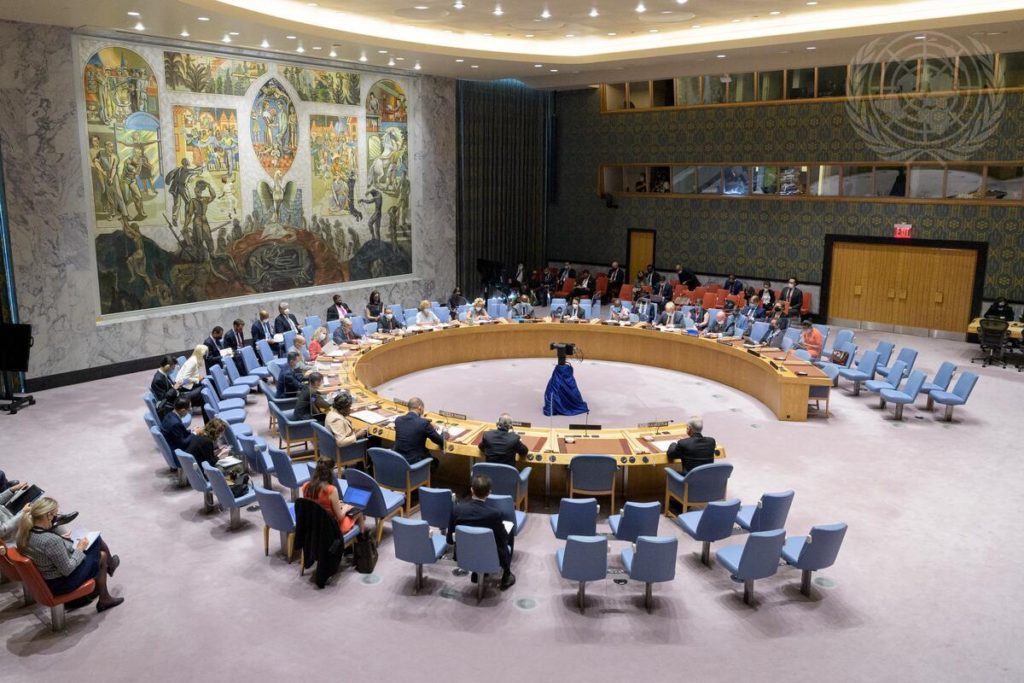New York, August 16 – The United Nations decided to stay put in Afghanistan after Taliban armed forces took over the Kabul government, spreading fear that humanitarian work by international organizations in the last two decades would be lost and the country would harbor terrorism.
The UN Security Council held a public meeting on the dramatic development taking place in Afghanistan with diplomats calling the events in the country a tragedy and issuing warnings that the Taliban government would not be recognized by the international community if it fails to abide by international agreements.
The UN said the humanitarian crisis existing in Afghanistan under conflict has already affected 18 million people, or half of the country’s population. The Taliban’s military victory over the US-supported government in Kabul caused a large influx of Afghans trying to escape the country, causing chaos, fear and insecurity.
UN Secretary-General Antonio told the council that the world is following the events with “a heavy heart and deep disquiet about what lies ahead.”
“We cannot and must not abandon the people of Afghanistan,” Guterres said, adding that the UN staff and offices in areas under Taliban control will remain and he urged the Taliban to honor the integrity of the UN facilities and inviolability of diplomatic envoys and premises.
Guterres said the international community must use “all available instruments” to ensure that the Taliban respect human rights, respect and protect international humanitarian law and the rights and freedoms of all persons.
He said there have been chilling reports of severe restrictions on human rights throughout the country after Taliban forces swept over the country without must resistance and reports of mounting human rights violations against the women and girls who fear a return to the darkest days when the Taliban was in power.
“I appeal to the Security Council — and the international community as a whole — to stand together, work together and act together — and use all tools at its disposal to suppress the global terrorist threat in Afghanistan and guarantee that basic human rights will be respected,” Guterres said.
He said Afghanistan should never become a safe haven for terrorist organizations and the international community must use “all tools” at its disposal to suppress the global terrorist threat in Afghanistan and guarantee that basic human rights will be respected.
Guterres said the Taliban has promised to work with existing institutions, which means that civil servant salaries continue to be paid, infrastructure is maintained, airports are reopened, and health and education services continue.
He said the UN presence in the country will adapt to the security situation and will continue to assist the Afghan people under the present circumstances.
The UN Security Council established a UN Assistance Mission in Afghanistan (UNAMA) in 2002 to assist the civilian government in Kabul after the United States deployed troops in the country in response to the 9-11 terrorist attacks on the US. The UN employs about 3,000 Afghan personnel and more than 700 international staff.
During the debate in the Security Council, British Ambassador James Kariuki said his government has been working hard with the US to bring peace to Afghanistan. He urged the Taliban to cease all hostilities and military action and to ensure protection of civilians and allow the safe departure of foreign nationals and others who want to leave.
Kiriuki said the Taliban must “commit unequivocally not to harbor or give safe haven to terrorist groups which endanger other countries” and uphold human rights.
“If the Taliban continue to abuse basic human rights, they cannot expect to enjoy any legitimacy in the eyes of the Afghan people, or the international community.” Kariuki said.
United Nations correspondent journalists – United Nations correspondent journalists – United Nations correspondent journalists
United Nations journalism articles – United Nations journalism articles – United Nations journalism articles

